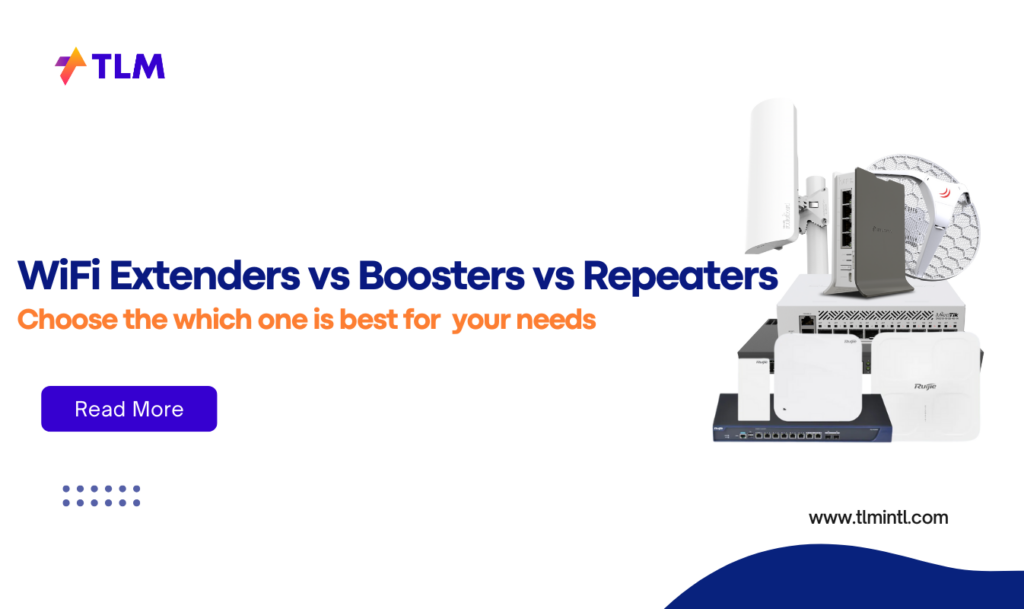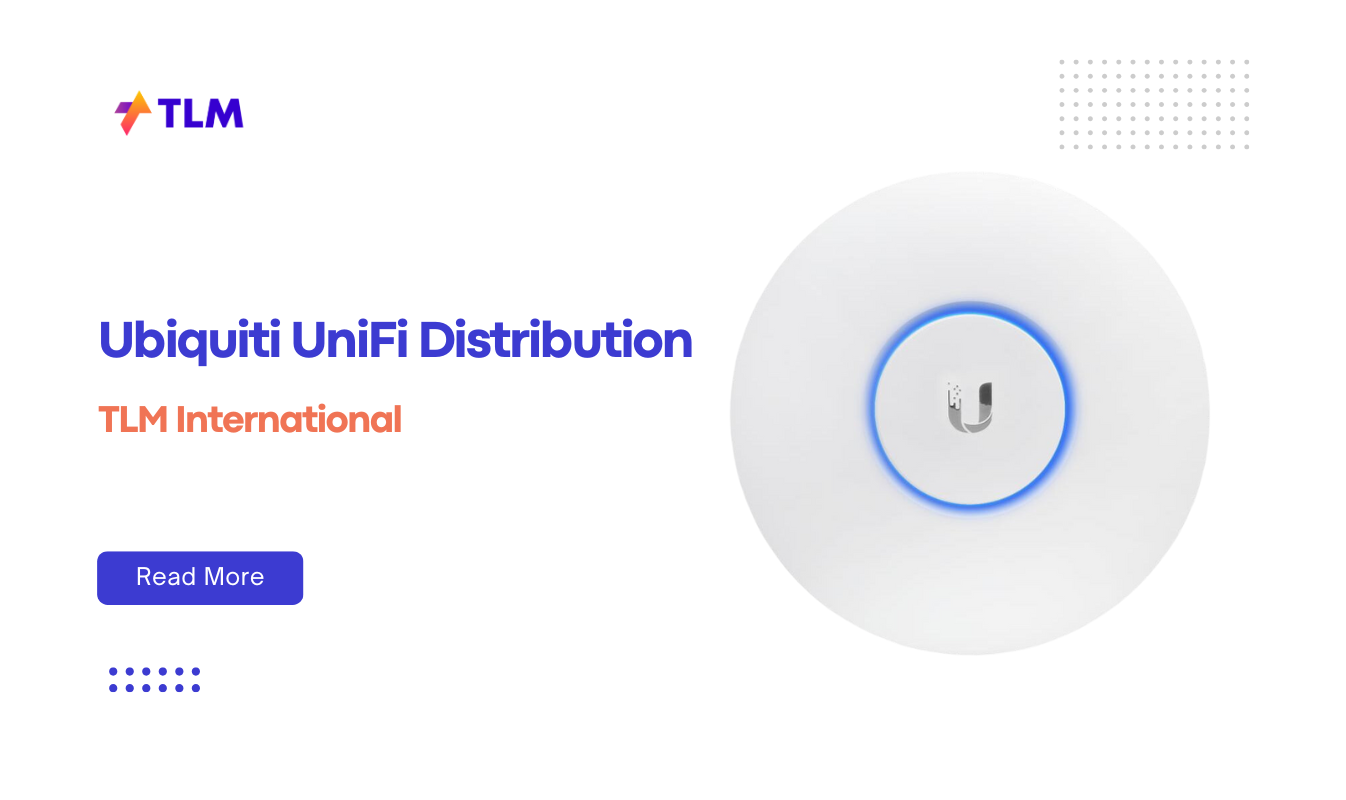Wireless networking,terms like WiFi extenders, boosters, and repeaters are often used interchangeably, but they refer to different devices with distinct functionalities. Understanding these differences is crucial for optimising your home network or Business networks or office connections.While these terms are often used interchangeably, they refer to different technologies with distinct functionalities. This article will explore the differences between these devices and help you determine which one best suits your needs.
Understanding the Basics
Before diving into the specifics of each device, it’s important to understand what they aim to achieve: improving your WiFi coverage.
WiFi Boosters
Definition and Functionality:
A WiFi booster is a general term that encompasses devices designed to improve the coverage of a WiFi network. This category includes both WiFi extenders and repeaters. The primary purpose of a booster is to amplify the existing WiFi signal, allowing it to reach areas with weak or no signal.
How It Works:
WiFi boosters work by connecting to a wireless access point, such as a router, and re-broadcasting the signal to extend its reach. They are typically placed between the router and the area where improved coverage is needed.
Considerations:
While boosters can enhance signal strength, they do not inherently increase internet speed; they rely on the existing signal quality
WiFi Repeaters
Definition and Functionality:
A WiFi repeater is a device that wirelessly connects to your router and re-broadcasts the same signal to extend coverage. It essentially creates a second network, which can be useful in areas with significant interference or multiple devices.
How It Works:
Repeaters use two wireless routers: one picks up the existing WiFi network, and the other transmits the boosted signal. This setup can lead to reduced bandwidth for devices connected through the repeater due to increased latency.
Limitations:
Repeaters may reduce internet speed because they split bandwidth between the original and repeated signals. They are best used in areas with strong initial signals
WiFi Extenders
Definition and Functionality:
WiFi extenders are devices that extend the reach of your network by creating a new access point using a wired connection to your router. This method minimizes latency issues and maintains internet speed.
How It Works:
Extenders connect directly to your router via an Ethernet or coaxial cable and re-broadcast the signal over a new network channel. This setup ensures consistent high-speed coverage across larger areas.
Advantages:
Unlike repeaters, extenders do not create additional latency or reduce bandwidth since they use a direct wired connection to the router. They are ideal for covering large homes or areas with multiple obstructions
Key Differences Between WiFi Extenders,WiFi Repeaters & WiFi Boosters
Understanding the differences between these devices can help you choose the right solution for your home.
| Feature | WiFi Extender | WiFi Repeater | WiFi Booster |
| Connection Type | Wired or Wireless | Wireless | Wired or Wireless |
| Network Creation | Extends existing network | Creates a new network | Varies (can be either) |
| Impact on Speed | Minimal to no speed reduction | Can reduce speed due to bandwidth sharing | Depends on type (extender or repeater) |
| Ease of Setup | May require more setup steps | Easier to set up | Varies based on type |
| Best Use Case | Larger homes or areas with significant dead zones | Small to medium-sized homes | General improvement of coverage |
| Signal Coverage | Provides stronger and more stable coverage | Extends coverage but may weaken the signal | Varies based on type |
| Cost | More than Repeater | Less than Extender | Varies based on type |
Pros and Cons of WiFi Extenders,WiFi Repeaters & WiFi Boosters
Pros of Using a WiFi Extender
- Stronger Signal: Provides robust coverage over larger areas.
- Flexible Placement: Can be placed strategically for optimal performance.
- Minimal Speed Loss: Maintains better speeds compared to repeaters.
Cons of Using a WiFi Extender
- Complex Setup: May require more configuration than repeaters.
- Higher Cost: Generally more expensive than repeaters.
Pros of Using a WiFi Repeater
- Easy Setup: Simple installation process.
- Cost-Effective: Less expensive option for extending coverage.
Cons of Using a WiFi Repeater
- Reduced Bandwidth: Can significantly reduce internet speed.
- Separate Network Name: Creates a new SSID, which can be inconvenient.
Pros of Using a WiFi Booster
- Versatile Solutions: Offers both extender and repeater functionalities.
- Improved Coverage: Enhances overall network reach.
Cons of Using a WiFi Booster
- Varied Performance: Effectiveness depends on specific type used.
- Potential Confusion: Broad term that can lead to misunderstandings about functionality.
Choosing WiFi Extenders or WiFi Repeaters or WiFi Boosters for Your Needs
When deciding between these devices, consider the following factors:
Home Size and Layout
- Larger homes with multiple floors may benefit more from extenders due to their stronger signal capabilities.
Budget Constraints
- Repeaters are generally cheaper but may not offer the same performance as extenders.
Technical Expertise
- If you prefer simple solutions, a repeater might be easier to install.
Desired Coverage Area
- Identify specific dead zones in your home to determine which device will best address those areas.
Conclusion
Understanding the differences between WiFi extenders, boosters, and repeaters is crucial for enhancing your home network’s performance. Each device has its own strengths and weaknesses, making it essential to assess your specific needs before making a decision. Whether you aim for stronger signals in large spaces or need an easy fix for small dead zones, choosing the right device will ensure seamless connectivity throughout your home.






